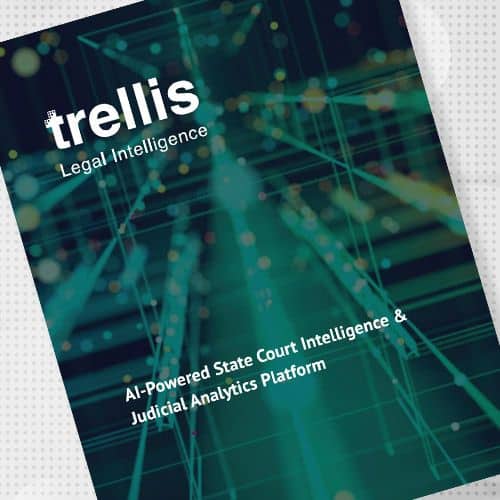Legal project management software can help lawyers with ongoing, chaotic, unpredictable workflows. Utilizing a good project management tool is important for organizing the firm’s work and maintaining high client expectations. For a law firm, these tools assist in managing internal projects, for a more profitable practice. Nicole Clark points to nine applications to consider for the task.

Table of contents
In 1931, Neil H. McElroy at Procter & Gamble circulated a memo that envisioned an employee who would be responsible for every facet of brand development — everything from tracking sales to advertising, promotion and product development. Over the years, predictions have proliferated, with many anticipating that these product managers would come to replace project managers.
Those predictions have fallen flat across the legal sector. Instead, in the past decade, the popularity of legal project management has grown exponentially. Offering a legal service is, of course, quite different from developing a new disinfectant, or building a software application or a material object. Few legal projects resemble the step-by-step processes involved in offering a good rather than a service. This is why legal project management is turning into a field of its own, innovating industry-specific techniques for improving client service and efficiency, in ways that increase client involvement and transparency.
An Accidental Legal Project Manager
As law students, few litigators imagined themselves transitioning into project management roles after passing the bar. Project management tools specifically tailored for legal professionals enhance workflow efficiency and assist in managing tasks and documentation. Litigators rarely receive formal training in project management, but this does not mean they do not do project management. As one legal project manager commented, “Lawyers have been playing the role of accidental project manager for many years.”
Project Management Tools
Your firm may not be in a position to hire a legal project manager, but many software programs out there can help lawyers manage ongoing and chaotic workflows. Effective task management is important for organizing, assigning, and tracking tasks related to various legal projects. Here are a few project management tools — both general management and legal apps — that can help with the task:
- Asana project management software is based on the Kanban management system, which enables users to visualize work-in-progress. Asana is effective at breaking down complex projects into actionable tasks, in a manner that allows users to prioritize the things that matter most. You can create and assign tasks to specific individuals as well as identify the dependencies between tasks. This is achieved through the development of boards or lists.
- Trello is another popular Kanban-style tool that, like Asana, stores information in the cloud. A client intake staff member can create a new board for each potential client. They can customize each board with columns so that staff members can track or manage the development of a case. One column might be dedicated to deadlines, another to discovery tasks, another to trial preparation. The benefit of a Kaban-style collaborative work environment is that it gives participants a visual picture of the whole project. Communication is no longer siloed between individuals. It is shared across an entire team.
- Evernote is used by a number of attorneys, particularly for capturing information for legal research, productivity tasks and even case management. Evernote has the ability to capture and save notes and recordings from the web in a variety of different formats, whether these be emails, legal briefs, research files or discovery documents. Effective document management in Evernote helps in organizing and centralizing case files for legal professionals. According to Heidi Alexander, author of “Evernote as a Law Practice Tool,“ “you can use the web clipper to save case law from the internet and then tag it with a case proposition, a fact pattern, [or a] jurisdiction … then when you later need that case all you need to do is search by tag. In contrast, when I was in practice we would print all of our cases, annotate them at the top, throw them in a folder and look through all these files.”
- Arteria AI is an end-to-end contract management tool originally developed by Deloitte’s AI Factory to streamline the drafting process. While many attorneys are already familiar with text templates or speech-to-text applications, Arteria provides templates that can automatically input contextual data, speeding up creation of contracts that are highly repetitive in some sections and highly personalized in other sections. You can store and manage contract negotiations, building an archive of templates that highlights previously contested clauses. All of this can be used to help create new documents in the future, separating the language that works from the language that doesn’t work. After a contract is signed and stored, Arteria even provides automatic alerts for expiration dates and other important milestones.
- TrialPad is a popular trial presentation iPad app from Lit Software that also serves as an affordable project management application. It allows lawyers to organize, manipulate and annotate documents for presentation in the courtroom or at the conference table and via zoom and other videoconference programs. For solo practitioners and small law firms, an application like TrialPad makes trial preparation and organization easy. You can organize matters into separate case folders, coloring and customizing each with easy-to-identify icons — and you can share cases with other TrialPad users.
Practice Management Software
There are, of course, other tools that help attorneys integrate the details of each project into the day-to-day operations of their legal practice. While not an exhaustive list of legal management software, the following is a taste of the top options available for managing legal projects and activities within law firms. Legal practice management software is essential for streamlining various workflows and enhancing productivity.
- MerusCase is a highly customizable software system, one that is designed to automate the bureaucratic tasks associated with the practice of law. The product links actions, documents and workflows to specific cases, merging case details, client information, practice notes and legal correspondences into one place. After integrating this information, users can use MerusCase’s batch scanning, predictive search and auto-population tools to digitize, search and complete standardized court forms and legal documents. MerusCase includes specialty features for specific areas of law as well, including family law, employment and workers’ comp.
- Clio is cloud-based practice management software that consolidates client intake, contact management, calendaring and timekeeping tasks. With Clio, prospective clients can book consultations directly into an attorney’s calendar, completing the relevant pre-engagement paperwork before stepping into their first meeting. Clio augments this process with a robust infrastructure for client intake reporting. This means attorneys can track who reaches out to them and who converts into a client — key information for illuminating why some prospective clients convert and others do not.
- MyCase, another cloud-based practice management system, specializes in the accounting aspects of project management, simplifying the timekeeping and billing tasks associated with legal work by centralizing a law firm’s financial data alongside its case files. The platform eliminates redundant data entry across multiple systems and places all client transactions and reconciliations in one place. By centralizing this work, attorneys can maintain visibility and control over all transactions, tracking outstanding bills and expenses, staying compliant with trust requirements, and projecting future cash flows. One of the key features of MyCase is the fact that it offers bank-grade security (using 128-bit SSL encryption) to protect client data.
- CASEpeer is practice management tailored for the unique concerns of personal injury attorneys. In addition to providing basic features like case management, workflow automation and document storage tools, CASEpeer also includes a settlement monitoring system. With CASEpeer, attorneys can track — in real-time — every single offer they receive and every single demand they present. They can also monitor accepted settlements, tracking any pending payments, recording any deposited checks, and projecting any future income streams.
Related: “Project Management Demystified” by Larry Port
A Powerful Project Management Panacea?
New technologies are weaving their way into every nook and cranny of the legal industry, allowing us to work anywhere at any time with incredible efficiency. Legal project management tools enhance the efficiency of legal professionals by providing features that streamline workflows and improve organization. These days, it seems as though every workflow frustration can be met with an easily accessible technological solution.
Still, it is important to take stock of the demand for new legal technologies. According to one study a while back, 42% of responding lawyers who did not use cloud computing said they did not plan to ever use it. Why not? More than half raised confidentiality and security concerns, particularly when it came to losing access to, and ownership over, data. In fact, fewer than one-third of cloud computing attorneys bothered to read the terms of service agreements of the software they use.
These concerns still act as a reminder that efficiency and transparency come with their own costs and benefits.

















